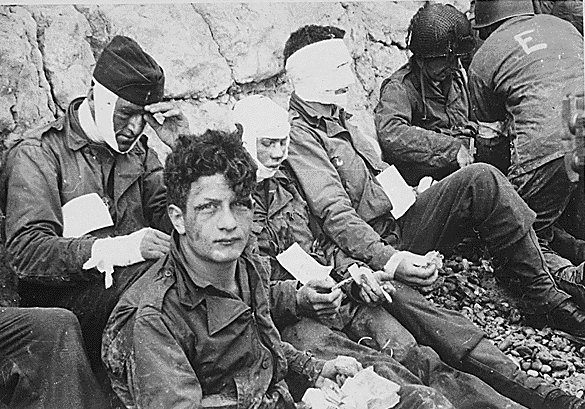
Without a doubt, my main motivation for taking this trip is to learn more about the Americans who put their lives in the line and, in some cases, paid the ultimate sacrifice to preserve freedom for the people of Europe and, in extent, the United States. As I stated in my trip proposal, I hold service to our country in high esteem, and since I have never worn a uniform, I see part of my job as teaching students about the sacrifices made by Americans past and present. I hope that this trip will not only increase my knowledge, understanding, and respect for the Americans citizens who participated in Operation Overlord and World War II, but that it will lead to greater understanding and appreciation from my students as well.

Who were the soldiers that jumped into northern France, commanded the naval craft, flew through hellacious fire, and stormed the beaches? Stephen Ambrose described them as follows: “The literature they read as youngsters was antiwar, cynical, portraying patriots as suckers, slackers as heroes. None of them wanted to be part of another war. They wanted to be throwing baseballs, not hand grenades, shooting .22s at rabbits, not M-1s at other young men. But when the test came, when freedom had to be fought or abandoned, they fought. They were soldiers of democracy. They were the men of D-Day, and to them we owe our freedom.” They have been called “The Greatest Generation”, and after all of the reading I have done to lead up to the trip, I can’t think of a better title.

I will be listening to the words of these men as I travel, in the form of the oral histories from “Voices of Valor - D-Day: June 6 1944” by Douglas Brinkley and Ronald J Drez and “WWII In Their Own Words” from Topics Entertainment. Just listening to their memories on American soil is awesome, but surely hearing them speak as I walk in their footsteps will be all the more powerful.
I would love to be able to speak with some of the men who put their lives on the line that Tuesday in northern France, or those that worked leading up to the invasion or followed afterwards and liberated France. I hope to meet with some of Wisconsin’s survivors over the next few years, but unfortunately, their numbers grow thinner by the day. There are many great repositories online of interviews with D-Day veterans, with the best being the Veterans History Project. As you read or hear these oral histories (from WWII or any other American military conflict), the most compelling part of their reflections, to me, is not the amazing feats of heroism or harrowing situations they share or comments on brotherhood and patriotism they state. While those memories always move me, I am more impressed and affected by their modesty, their humility, their resistance to call attention to their own valor and instead transfer the valor to their comrades, many of whom never made it back home. They gave the ultimate, put it all on the line, to do the right thing, and asked for nothing in return – isn’t that the definition of a hero?
Eisenhower said so when he revisited Normandy 20 years after the invasion, as he reflected "it's a wonderful thing to remember what those fellows twenty years ago were fighting for and sacrificing for, what they did to preserve our way of life. Not to conquer any territory, not for any ambitions of our own ... they did it so the world could be free."

Charles,
ReplyDeleteI can't wait to hear how your fluent franca is working in Normandy!
hope you are learning tons and enjoying your trip.
Mme
Oui - My francais is tres bien - and I had quiche today - it was yummy
ReplyDelete